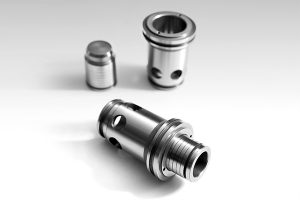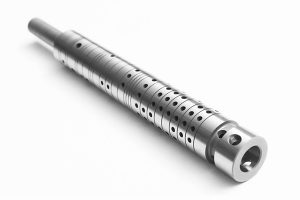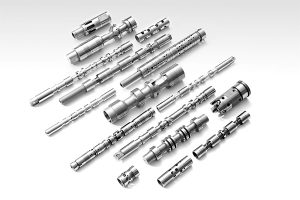Inside Casting & Machining Products (Part 3)
Part 3: Precision Machining

Precision machining entails the transformation of metal sheets, bar stocks, and other formed materials into specially designed parts and shapes with machinery.
Because it’s compatible with a wide range of processes and materials, precision machining can produce quality components for nearly any industrial application. Indeed, precision machining can be used with a number of common metals and alloys, including alloy steels, carbon steel, copper alloys, aluminum alloys, and stainless steel. Products produced with precision machining include hydraulic spools, pistons, and engine fuel injectors.
3 Major Processes in Precision Machining
Precision machining can be used to create a wide variety of products due to the diverse set of available machining processes. When equipped with the proper fixture, the machinery used in these processes can be completely automated, further streamlining manufacturing. Three of the most common processes are outlined below:
- Milling
Milling machines eliminate unwanted material by running a revolving cutting tool over a metal part, removing any excess material that remains after the initial cutting. These machines can be classified as either horizontal or vertical milling devices depending on the position of their spindle. - Turning
 Turning is the most common precision machining method used in cutting metal components. During this process, a component is rotated on its axis while cutting tools move around it to trim off excess material—ultimately shaping it into its desired form. Turning processes can be categorized as external or internal. External turning reduces the work pieces to a specific diameter as it rotates along the axis, while internal turning involves the use of a reamer to get the drilled holes to the specified size.
Turning is the most common precision machining method used in cutting metal components. During this process, a component is rotated on its axis while cutting tools move around it to trim off excess material—ultimately shaping it into its desired form. Turning processes can be categorized as external or internal. External turning reduces the work pieces to a specific diameter as it rotates along the axis, while internal turning involves the use of a reamer to get the drilled holes to the specified size. - Drilling
Drilling involves making round holes in a piece of metal until it takes the desired shape. The drilling is performed with a rotating, cylindrical drill bit with two cutting edges. Many different types of drilling can be used in precision machining. Deep hole drilling, for example, can make holes 150x that of the diameter of the drill.
Benefits
 Precision machining offers numerous benefits to manufacturers that rely on specially designed metal parts. Most importantly, it enables users to completely automate the machining process, increasing the speed and efficiency of manufacturing in general. Since automated precision machining equipment can work more quickly for longer periods of time, they also generate greater output for the entire company.
Precision machining offers numerous benefits to manufacturers that rely on specially designed metal parts. Most importantly, it enables users to completely automate the machining process, increasing the speed and efficiency of manufacturing in general. Since automated precision machining equipment can work more quickly for longer periods of time, they also generate greater output for the entire company.
Aside from its efficiency, precision machining equipment helps users improve worker safety, giving operators the ability to monitor production remotely and intervene as needed. Because it’s programmed to exact to meet the manufacturer’s exact specifications, it also promotes accuracy and precision during production. In the process, it can effectively eliminate the need to fix costly mistakes or redo production runs.
Since 1998, Impro has provided high-precision, high-quality metal components for customers across industries. Our talented team of experts has extensive experience with a variety of manufacturing processes––including precision machining parts––ensuring that we can provide any client with accurate, reliable, and consistent parts for use in a wide range of applications. Regardless of your needs, we’re here to supply you with a durable and efficient solution to your operational challenges.
 To learn more about Impro’s precision machining capabilities, visit our website, or contact us to discuss options for your next project.
To learn more about Impro’s precision machining capabilities, visit our website, or contact us to discuss options for your next project.
To learn more about investment casting, or our other casting processes, download our eBook, Comparing Casting Processes to help determine which process best fits your unique application.
This is part three of a blog series. Check out part one and part two.